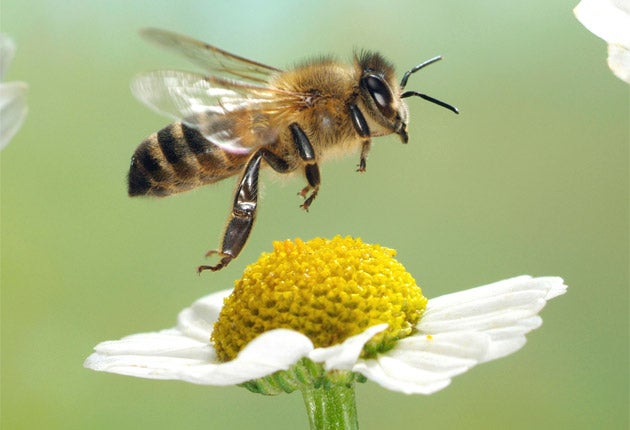New film blames drug firm for plight of honey bees

It's a question that has baffled the worlds of agriculture and science – what is it that has caused the mysterious deaths of honey bees all over the world in the last five years? A new film may have the answer.
Vanishing of the Bees, which will be released in Britain next month, claims the cause is the use of a new generation of pesticides that weakens the bees and makes them more susceptible to other diseases.
Narrated by the British actress Emilia Fox, the 90-minute film tells the story of what has become known as colony collapse disorder.
The problem first appeared in America in the winter of 2004, when many beekeepers across the country found that their bees had suddenly vanished, leaving behind empty hives. Since then scientists have failed to find a single cause for it.
The film goes on to suggest that neonicotinoid pesticides, some of them made by Bayer, one of the world's biggest chemical companies, may be behind the disappearances.
The pesticides include the widely-used imidacloprid (marketed under the trade name Gaucho), which has been banned in France following pressure from beekeepers. It is still in use in Britain, the US and elsewhere.
Neonicotinoids are systemic compounds, which means they are applied to seeds rather than sprayed on to growing plants. They enter into the plants themselves and affect the insect pests that consume them.
In theory, insects that are not pests should not be affected. But Vanishing of the Bees, made by the independent filmmakers George Langworthy and Maryam Henein, suggests that long-term, low-level exposure to these compounds may be having a sub-lethal but debilitating effect on honey bees.
The pesticides, it suggests, may be the final straw for a bee population that has already been weakened in recent years by diseases ranging from the devastating varroa mite to the nosema fungus and other viruses.
In particular, the film targets Bayer, the long-established German firm which invented aspirin and is the world's fourth-largest pharmaceutical company.
Bayer rejected the allegations last night, insisting that its products did not harm bees.
"Everybody knows this is about the varroa mite, the nosema pest and a number of fungal and viral diseases," said Dr Julian Little, a UK spokesman for Bayer CropScience.
"The healthiest bees in the world are in Australia, where they have lots of neonicotinoids but they don't have varroa. If you look at a country where they have restricted the use of neonicotinoids, France, they have a worse bee problem there than they do in the UK," Dr Little added.
The British Beekeepers' Association said it did not have the evidence to say if neonicotinoids were behind honey bee declines.
"All the data we have seen so far is inconclusive," said Tim Lovett, the association's president.
Join our commenting forum
Join thought-provoking conversations, follow other Independent readers and see their replies
0Comments